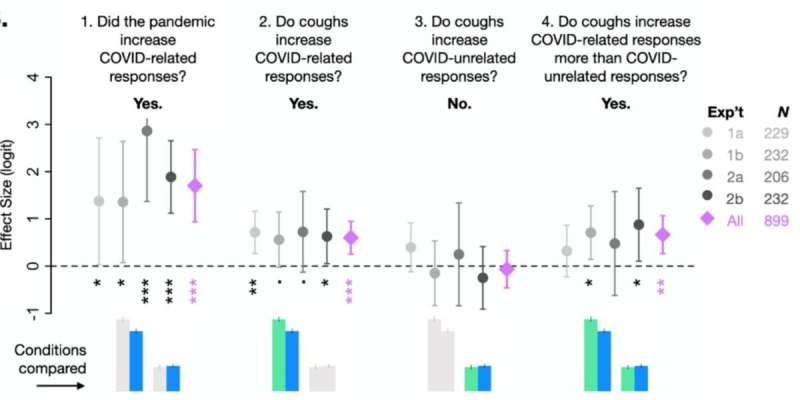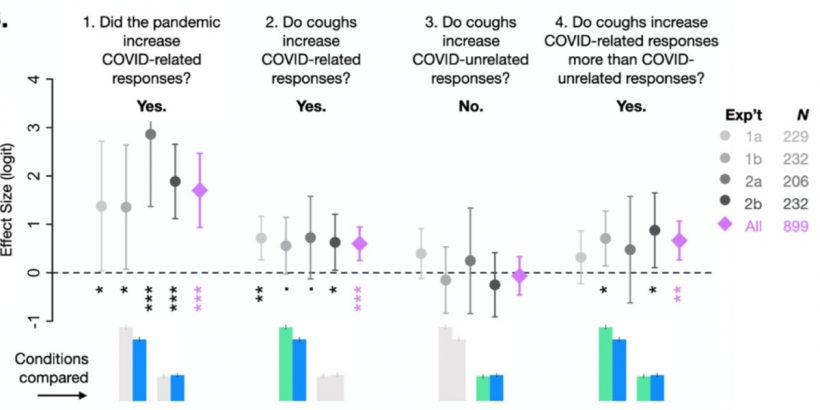
Human language is key to our understanding of the world, and an essential window into cognitive and neurological processes. Using the ongoing COVID-19 pandemic as a natural experiment, a recent study investigated the plasticity of the human language system, asking: Has the pandemic also changed how we understand language?
In a paper published today in PLOS ONE, an international group of researchers says the answer is yes. The study, conducted by Daniel Kleinman (Haskins Laboratories), Adam Morgan (NYU School of Medicine), Rachel Ostrand (IBM Research) and Eva Wittenberg (Department of Cognitive Science, Central European University (CEU)), leveraged the sudden increase in frequency of pandemic-related words—mask, isolation, lockdown—to measure how the human language system dynamically adapted to societal changes throughout the first year of the pandemic.
Participants in the study listened to a series of words that had been digitally altered, with some sounds in each word replaced by noise. For example, the word task had the t replaced, so participants heard “[noise]ask.” Then, participants reported which word they perceived—typically mask or task. The key finding of the study was that pandemic-related words like mask were perceived more often than similar, pandemic-unrelated words, especially when the noise was a cough. This shows that the pandemic has reshaped how listeners process speech and what they expect from ambiguous input. More generally, it shows that abrupt changes in linguistic exposure can quickly cause enduring changes to the language system.
This study is novel in how it used a standard psychology task to measure the effects of events occurring in the real world, according to CEU Associate Professor Eva Wittenberg. “Most cognitive research on language processing relies on laboratory-based experiments. However, there are few opportunities to capture and experimentally measure cognitive effects in real-time situations, especially across a large sample of participants,” said Wittenberg.
Source: Read Full Article






